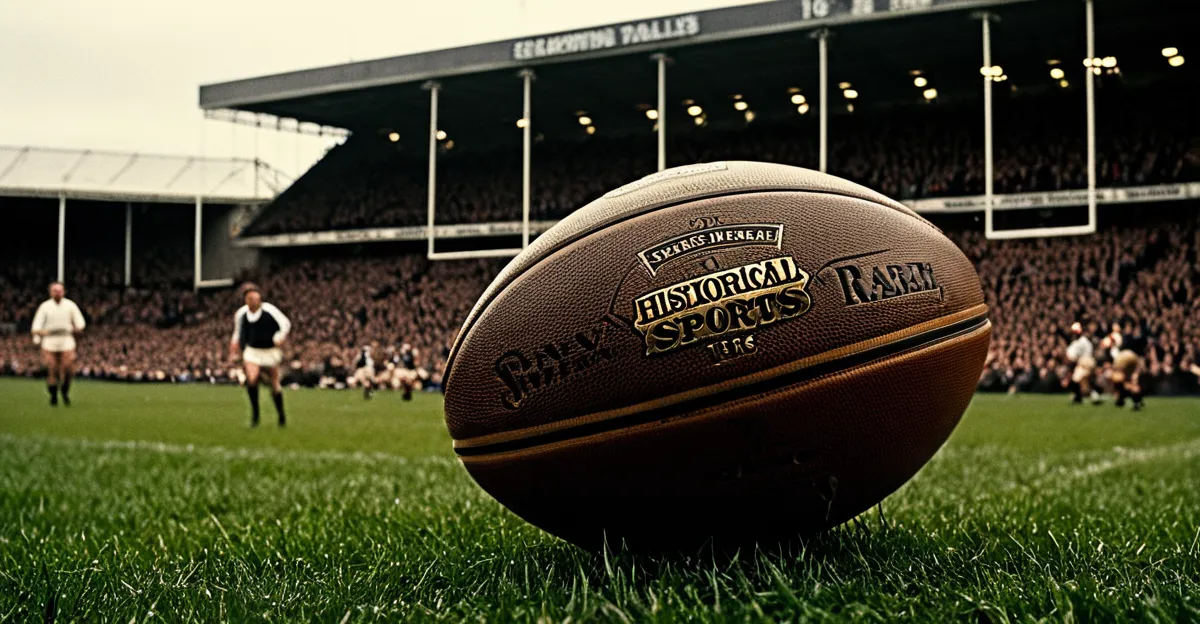Overview of Traditional UK Sports
Traditional sports in the UK serve as a vivid tapestry woven into the cultural heritage of the nation. Defined by their historical roots, these sports are more than just games; they are a bridge to the past, a celebration of UK culture, and a cornerstone of community. These sports have historically fostered camaraderie and spirit, defining eras and uniting generations.
The cultural impact of traditional sports on UK society has been profound. From village greens to world-famous stadiums, traditional sports have permeated every level of society, embedding themselves in the national consciousness. They are celebrated for their ability to unite diverse communities under a common passion, fostering a sense of belonging and national identity.
In parallel : How Can the Popularity of UK Sports Influence Youth Development?
Key traditional sports to be discussed include cricket, known for its pastoral and strategic intricacies; rugby, celebrated for its physicality and teamwork; and soccer, the sport that captures the fervor and devotion of millions. Each of these sports has its own unique place in UK culture, contributing to its vibrant and varied sporting landscape. Understanding these sports and their historical roots offers a deeper insight into the rich tapestry of UK society.
Historical Background of Cricket
Cricket’s origins unveil a tapestry of historical significance, dating back centuries in the UK. Initially evolving from games played by children in Southern England during the 16th century, cricket’s early versions laid the groundwork for what was to become a national pastime. By the 18th century, cricket had developed into a formal sport with established rules and conventions, marking the dawn of organized play and founding a cultural institution.
In parallel : How Could Emerging Technology Transform the Future of UK Sports?
The development of cricket was punctuated by the formation of key bodies like the Marylebone Cricket Club (MCC) in 1787, which standardized cricket laws and elevated the sport’s prestige. With the growth of county cricket and international test matches, cricket seized a prominent place in British society, fostering a unique blend of pastoral elegance and competitive spirit.
In the realm of cultural significance, cricket served not merely as entertainment, but as a vehicle for social cohesion, British identity, and even imperial ideology. The sport became an integral symbol of British culture, extending its influence globally through the British Empire, where it remains a cherished pastime in many former colonies. Reflecting its origins, cricket continues to resonate within the UK, maintaining its status as more than just a game, but a significant piece of cultural heritage.
The Evolution of Rugby
Rugby’s history in the UK is rich and layered, originating in the 19th century from traditional football games played at English public schools. Legend attributes its creation to William Webb Ellis, who, in 1823, reputedly picked up the ball and ran with it during a football match at Rugby School. This action is emblematic of rugby’s departure from football and represents the distinctive physicality that separates the two sports.
As rugby evolved, significant developments shaped its trajectory. By the late 1800s, the establishment of formal rules and the founding of the Rugby Football Union in 1871 marked rugby’s transition to organized sport. The creation of rugby leagues, particularly the split into rugby union and rugby league in 1895, further defined the sport, each branch developing unique styles and cultures.
Key figures played instrumental roles in rugby’s advancement. William Webb Ellis is celebrated for his audacious act, despite debates over the authenticity of his story. Other notable individuals include Gareth Edwards and Jonny Wilkinson, whose performances have cemented their status as icons within the rugby culture. Their contributions have not only influenced play styles and strategy but have also left indelible marks on the UK’s cultural fabric.
The impact of rugby extends beyond the pitch, embodying values such as teamwork, respect, and discipline. It remains a unifying force within UK communities, cultivating a sense of pride and camaraderie. Rugby’s influence is evident in its presence at various levels, from local clubs to international tournaments, making it a cornerstone of UK’s sporting heritage.
The Story of Soccer in the UK
Soccer, often referred to as football outside North America, is deeply embedded in UK culture, tracing its origins back to medieval times. Historical records suggest that early forms of the game were played in local towns and villages, showcasing the sport’s longstanding relevance. However, it wasn’t until the 19th century that soccer began to take its modern form, with public schools and universities playing a crucial role in its formalization.
The establishment of major leagues, such as the Football Association (FA) in 1863, marked a significant milestone in soccer’s development. These leagues provided a structured framework, setting down rules that differentiated soccer from rugby. Over time, soccer evolved from being a local pastime into a globally recognized sport, becoming an integral part of the UK’s social fabric.
In terms of societal influence, soccer holds a unique place in modern UK life. Beyond being a popular spectator sport, it serves as a dynamic force for community engagement and cultural expression. Whether it’s local club rivalries or national team pride, soccer impacts society by uniting individuals across various backgrounds and fostering a shared sense of identity. Such interactions highlight soccer’s role not only as a sport but also as a significant cultural phenomenon in the UK.
The Cultural Significance of Traditional UK Sports
Traditional sports in the UK hold a profound cultural role, deeply woven into the fabric of society. These sports, steeped in historical roots, not only represent charming pastimes but are pivotal in creating a sense of national identity and unity. Through centuries, they have served as fertile grounds for community bonding, transcending social and economic boundaries to unite people under a shared passion.
In a world increasingly captivated by contemporary sports, traditional sports in the UK stand as guardians of historical narratives and customs. While modern sports may command vast audiences and financial clout, traditional sports offer an intimate connection to longstanding traditions and community values. This cultural role is further amplified when juxtaposed with modern sports, reminding the audience of a simpler, yet richly textured past.
Furthermore, traditional sports have mirrored historical socio-political contexts, reflecting shifts in society and governance. During times of social change, they have embodied resilience, offering solace and continuity. The community impact of these sports has been monumental, not just in garnering local support but in shaping UK society’s ethos and character over generations. By carrying forward the heritage of traditional sports, the UK nurtures a living link to its storied past, championing diversity and inclusion within its cultural heritage.
Conclusion of Historical Origins of Traditional UK Sports
The intertwining of traditional sports in the UK with its cultural and societal developments provides a vivid tableau of the nation’s rich heritage. From the pastoral charm of cricket to the rugged camaraderie of rugby, and the widespread appeal of soccer, these sports encapsulate the historical roots that have shaped British society over centuries. This legacy has not only woven itself into the fabric of UK life but also left an indelible mark on global sporting culture.
Preserving traditional sports is pivotal for nurturing this heritage. As modern sports gain prominence, there’s a growing need to maintain these historic pastimes that serve as timeless vessels of culture and identity. Ensuring they thrive amidst contemporary practices fosters inclusion and diversity, enriching the sporting landscape with deep-rooted traditions.
Going forward, the focus should be on celebrating these sports’ unique contributions while adapting at a pace that honours their historical essence. Engagement initiatives that anchor these traditional sports within modern society can not only preserve their legacy but also inspire future generations to appreciate the beauty and values embedded in their historical roots.




